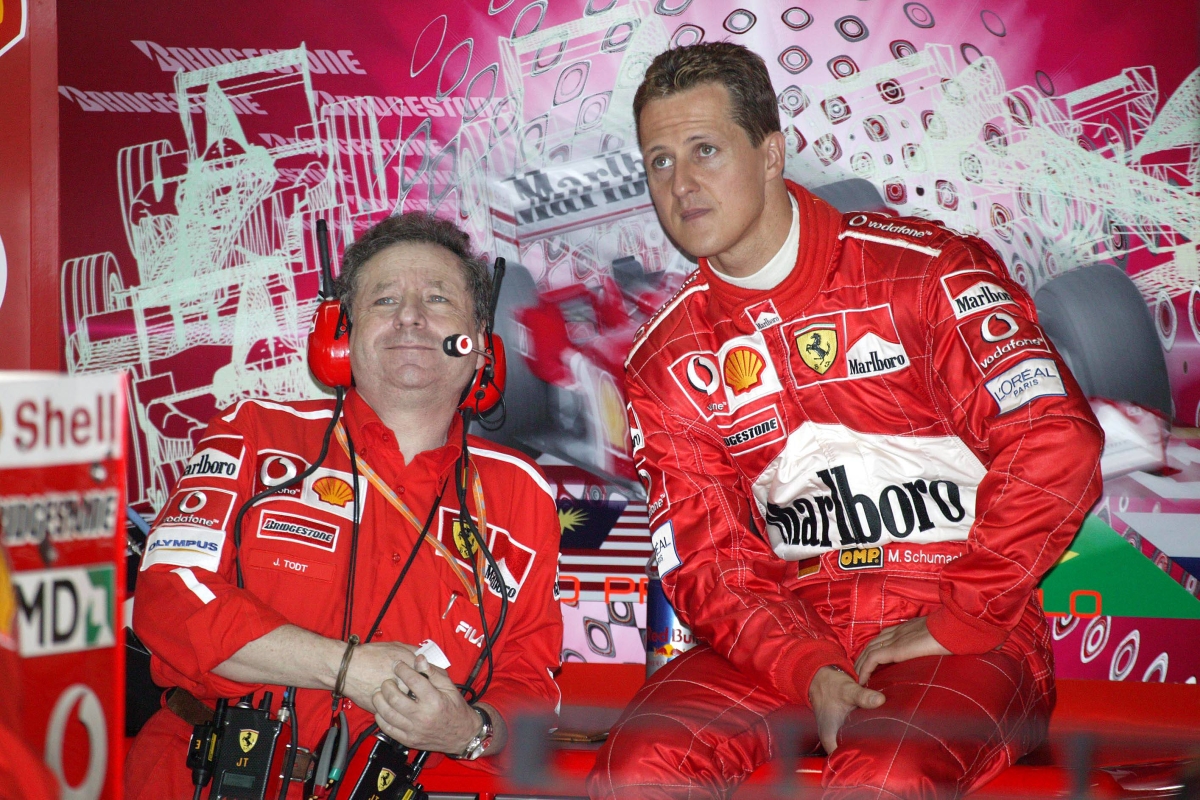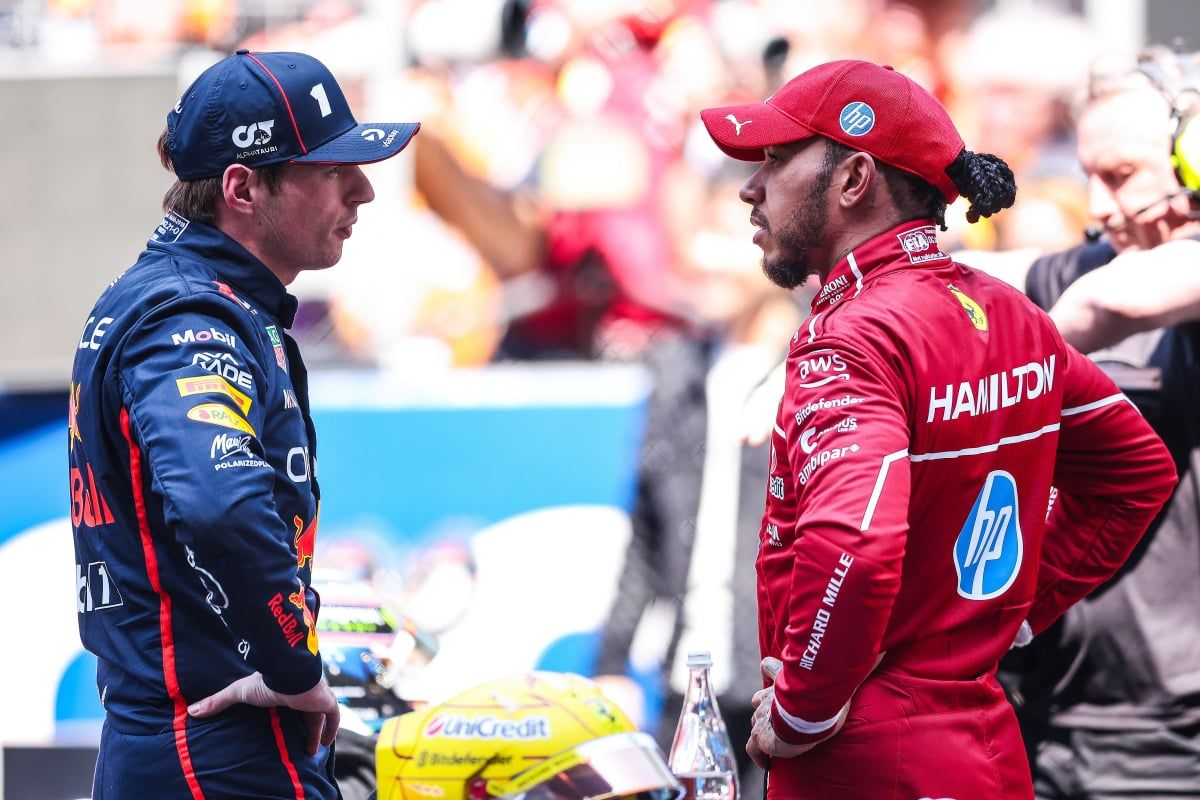Michael Schumacher and Ferrari Given Extraordinary Snub a…read more
As Formula 1 celebrates its remarkable 75-year journey, a milestone that reflects how far the sport has come since its first official championship race at Silverstone in 1950, fans around the world expected a rich and comprehensive tribute to its heritage. Instead, many are left questioning the scope of the celebration, particularly due to the glaring omissions of some of the sport’s most iconic figures and eras — none more so than the legendary Michael Schumacher and his historic tenure at Ferrari.
In an attempt to honor its legacy, Formula 1 opted to live stream seven classic races over a 24-hour period, a gesture that could have served as a vibrant showcase of the sport’s evolution. However, the selection of races is oddly limited in scope, spanning just 17 seasons — from the 2008 Brazilian Grand Prix, where Lewis Hamilton clinched his first world title, to the 2023 Las Vegas Grand Prix. While these races hold their own significance, they cover a fraction of F1’s expansive history and overlook several of its most defining moments.
One of the most baffling aspects of this selection is the absence of races involving Michael Schumacher during his dominant years with Ferrari. Between 2000 and 2004, Schumacher redefined what it meant to dominate a motorsport, winning five consecutive world championships and breaking countless records in the process. Ignoring this era is akin to celebrating the history of football’s Premier League without acknowledging Alan Shearer, the division’s all-time top scorer. It’s a glaring omission that undermines the depth and complexity of the sport’s past.
Of course, there are practical challenges in compiling a definitive retrospective of 75 years. Footage from races before the 1980s is scarce, and many early races were never broadcast in full. Additionally, from a business standpoint, F1 did not gain full control of its broadcasting rights until the mid-1990s under Formula One Management (FOM), meaning consistent archival material has only existed for the past few decades. The issue of tobacco sponsorship may also be a deterrent, as much of F1’s branding during the 1990s and early 2000s prominently featured tobacco companies — something modern broadcasting standards may want to avoid highlighting.
However, these reasons fall flat when considering F1’s own digital library. The official YouTube channel is filled with highlights from the 1990s and early 2000s — races drenched in tobacco liveries. Therefore, it’s not a question of availability but one of editorial decision-making. Failing to include even one of Schumacher’s iconic drives feels less like a practical limitation and more like a snub.
There’s no shortage of Schumacher moments that could have added weight to the celebration. Consider the 2000 Japanese Grand Prix, where Schumacher secured Ferrari’s first drivers’ title in 21 years, ending a drought that had haunted the team since 1979. Or the legendary 2000 Belgian Grand Prix at Spa-Francorchamps, where Mika Hakkinen executed a jaw-dropping overtake on Schumacher in one of the most replayed moments in F1 history. Then there’s the tactical masterclass at Magny-Cours in 2004, where Ross Brawn’s four-stop strategy helped Schumacher seal yet another win, showcasing the blend of brilliance between driver and team.
Equally worth revisiting is Schumacher’s rain-soaked domination at the 1996 Spanish Grand Prix — his first victory with Ferrari — which remains one of the most sublime wet-weather drives in F1 history. Or his emotional 1996 win at Monza, his first in front of Ferrari’s home fans, which marked the beginning of a legendary partnership. These races weren’t just historic; they were transformative for both Schumacher and Ferrari, shaping a dynasty that continues to define F1’s modern era.
By choosing to gloss over this crucial chapter of F1 history, the sport misses a rare opportunity to educate and engage newer fans. The Schumacher-Ferrari era was not just about winning; it was about perseverance, innovation, and the rebirth of a struggling team into a dominant force. Failing to acknowledge that journey robs the 75th anniversary of its full narrative potential.
In short, while F1’s 75-year celebration should be applauded for attempting to bridge the past and present, it stumbles by overlooking some of its most pivotal chapters. Michael Schumacher and Ferrari didn’t just participate in the sport — they helped shape it. And to celebrate F1 without them is to tell an incomplete story.




